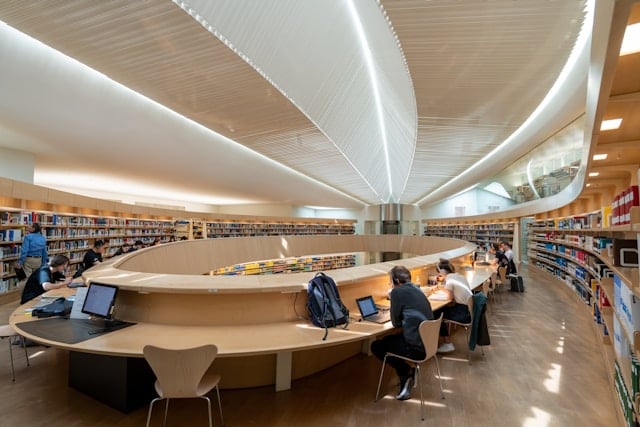In 2023, Switzerland had approximately 21,200 PhD students, according to the latest annual report from the Conference of Western Swiss Universities (CUSO). This figure does not include students studying medicine.
PhD students make up a large proportion of Switzerland’s student population – 12.5 percent of the total number of students registered to study in Switzerland are undertaking doctorates, the 2023 report from universities in the French-speaking part of the country showed.
Interestingly, the number of students studying for a PhD has grown far more in the last 30 years than the number of those studying for a bachelor’s or master’s degree.
International students are behind the sharp increase in numbers: they now make up the majority of students studying for a doctorate in Switzerland. The number of Swiss PhD students, however, has remained stable.
READ ALSO: How much can you earn with a Swiss university degree?
Diversity is increasing in other ways, too: almost as many women as men are now studying for a PhD in Switzerland.
However, the proportion of international students varies significantly according to the subject area, with PhDs in mechanical engineering and natural sciences attracting the highest numbers (around 80 and 70 percent, respectively).
“Diversity is an intrinsic characteristic of the doctorate, because the route to get there remains highly individual,” the report’s foreword stated.
But what it is it about Switzerland that makes it so attractive to students from other countries?
The quality of education is high in Switzerland, salaries and working conditions are very good, while the country’s position in the heart of Europe is seen as advantage by many, too.
READ ALSO: IN NUMBERS: What you need to know about Switzerland’s international students
“For someone coming to do a doctorate in Switzerland, from China or India, for example, there’s a certain appeal in getting closer to the European system and to funding, as well as becoming involved in research networks,” CUSO general secretary Denis Billotte told Swiss public radio RTS on Tuesday,
Switzerland is a highly educated country: it has, on average, more residents with PhDs than other European countries – 3 percent of the population have a doctorate compared with 1 percent of those in OECD countries.



 Please whitelist us to continue reading.
Please whitelist us to continue reading.
Member comments